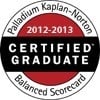As a HubSpot agency owner, I've helped countless businesses achieve scaling growth. I've witnessed how challenging, yet rewarding, scaling a business can be. It’s not simply about growing bigger—it’s about improving while expanding your reach and revenue. This requires strategic planning, deep market understanding, and the right systems.
Many CEOs base future projections on past performance, limiting their vision to incremental, not scaling growth. Let’s explore what it takes to rapidly scale, learn from common pitfalls, and break free from linear growth limitations.
Thinking Big: Setting the Stage for Scaling Growth
When CEOs share growth goals, they often cite a number based on past “reasonable” performance. But what if “reasonable” isn’t enough? What if your business could achieve exponential growth and significantly higher profit margins?
Sometimes, a shift in perspective is all it takes. One CEO I worked with initially aimed for a $200,000 increase based on his history. After discussion, he realized a million-dollar increase was possible with the right support.
Remember, at some point, you need more than five employees. Consider business scaling services for adding revenue streams to help support your growth business.
Is Your Current Success Limiting Your Company Growth?
If you excel, clients will likely flock to you. But that’s not scalable. Spectacular results should command higher fees. Investing in new sales strategies and operational structures is investing in true growth.
Often, business owners recognize their need for support but make a critical error. They try to fund it by taking on more clients within a broken model. This leads to higher overhead but negligible profitability and sometimes burnout.
Many clients have increased their fees substantially by leveraging our support, even though we don't offer the same professional services.
Strategic Investment: Fueling Your Scaling Growth
Scaling growth demands a different investment perspective. Are you looking at single investments like band-aids for operational issues? Or are you building a comprehensive, scalable strategy? Often, hiring more efficient team members is key to successful scaling.
I made a similar mistake. Instead of addressing operational woes strategically, I wasted hours on inefficient solutions. I should have sought support for faster resolution and optimized product development.
Underfunded and overextended projects sabotage success. Investing strategically is crucial for achieving product-market fit in various growth stages.
Investing Ahead of the Curve
Rapidly scaling businesses invest ahead of growth. We gain customers by helping companies improve pricing strategies. If you aim for 8-figure success, short-term investments for immediate gains are critical.
CFOs recognize the importance of investing in digital technologies for company scale. Rapid-growth companies see investments as strategic steps in partnerships designed for sustained success. Investing strategically minimizes costs as your business expands.
Overcoming Fear: Embracing the Leap of Faith for Company Scale
Transitioning to a scalable model can be daunting. If your current position isn't ready for further scaling, that’s okay; scaling growth isn’t for everyone. Consider adding customers incrementally until your company is ready.
Our clients take a leap of faith, gaining:
- ROI in the first 3-6 months (most in 3, potentially 6 for complex situations). Early stage scaling processes sometimes need extra support.
- Substantially higher price per client, potentially tripling.
- CEO freedom by building a results-oriented team.
- Greater results.
Challenging Your Assumptions for Successful Scaling
Fear is valid when scaling. Sometimes, businesses underestimate their potential. A deep-seated fear can hinder scaling to higher profitability. Address any fear to scale to higher profit margins, serving both business and client needs.
One CEO wanted immediate impact but delayed it by over two months by not committing. Consider your current success and its limits. Acknowledge your scaling efforts.
Operational Efficiency: The Cornerstone of Scaling Growth
Scaling growth relies heavily on operational efficiency. Around 25 employees, internal operations can fracture, impacting growth strategies.
Agile operations enable flexibility, which is far superior to cumbersome, bloated processes.
Efficiency Through Agility
Well-resourced organizations can become bogged down in bureaucratic processes, slowing progress. This hinders scaling practices. Striving for agile processes helps maintain efficient cash flow.
FAQs about scaling growth
What does scaling growth mean?
Scaling growth means significantly increasing revenue while minimizing cost increases. It’s about building efficient, repeatable processes to serve more customers without proportionally increasing resources.
What is scaling development?
Scaling development is the ability of your systems, processes, and team to adapt to handle growth. It accounts for potential training needs. It eliminates roadblocks by focusing on better planning and maintaining quality. This ensures the scalability of your offerings for growth.
What is scalability for growth?
Scalability measures your readiness for scaling. It encourages a strategic, long-term approach to investment for yourself, much like what you encourage your clients to consider for sustained growth within their own companies. This allows you to sustain constant growth and helps avoid making larger losses during expansion.
What is scale-up growth?
Scaling up describes a later growth period within the overall scaling trajectory. Businesses at this stage are often expanding internationally. You are better positioned for impact in this phase than earlier, a significant distinction in your overall success.
Conclusion
Scaling growth isn't about blindly chasing bigger numbers; it's about strategically aligning your investments. It is also about streamlining operations and building a sustainable business model. Let go of limitations, overcome fear, and embrace scaling growth’s possibilities.
There's no set path, especially when aiming for higher profitability. This journey involves challenges and adjustments. Consider the overall growth by thinking bigger than past performance. Become a better CEO by delegating tasks to more efficient team members, as Mark did to improve business results. Focusing on increasing profit margins, rather than just financial growth will contribute to more sustainable business growth.
In order to scale growth, you'll need to scale your lead generation, because everything is downstream of leads. That's why we developed the lead generation effectiveness scorecard, so you can see if you're ready to scale.
We are a full-service Hubspot Certified Inbound Marketing and Sales Agency. In addition, we work to integrate your SAP System with Hubspot and Salesforce, where we have a deep delivery capability based on years of experience. Please our book a meeting service to get started.



